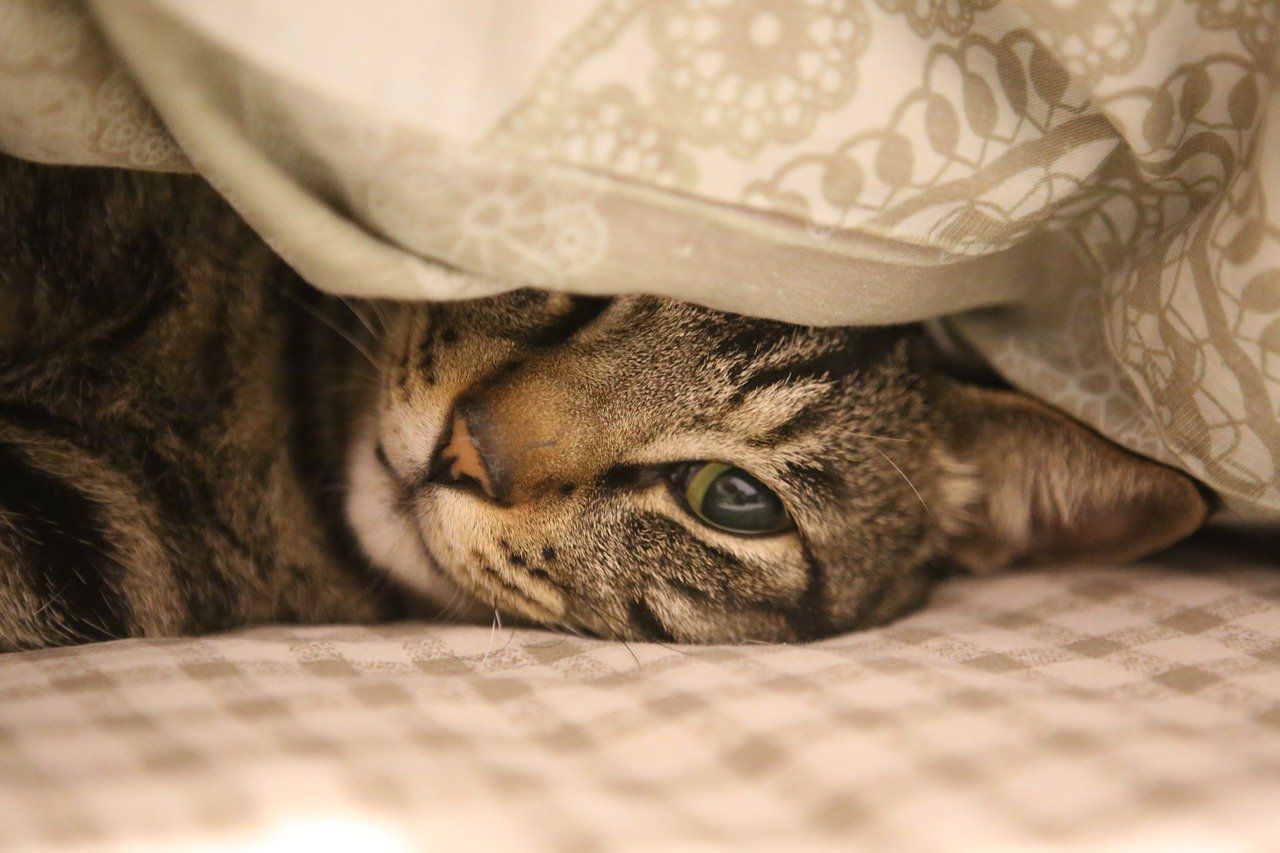Congestive heart failure (CHF) in cats is a serious condition where the heart cannot pump blood efficiently.
This inefficiency leads to a buildup of fluid in various parts of the cat’s body, most commonly in the lungs and chest cavity. As a result, cats with CHF often struggle with breathing and may experience other health issues related to poor circulation.
Disclaimer: All content and information on this website are for informational and educational purposes only and do not constitute veterinary medical or pet health care advice.
What Causes Congestive Heart Failure in Cats?
There are several causes of CHF in cats. Some of the most common include:
- Cardiomyopathy: This is a disease of the heart muscle itself. Hypertrophic cardiomyopathy (HCM) is the most prevalent type in cats, where the heart muscle thickens and becomes less flexible.
- Congenital Defects: Some cats are born with heart defects that can lead to CHF.
- High Blood Pressure: Persistent high blood pressure can cause damage to the heart over time.
- Hyperthyroidism: An overactive thyroid gland can lead to an increased heart rate and eventually cause heart problems.
Stages of Congestive Heart Failure in Cats
Congestive heart failure in cats can be mild, moderate, or severe.
If CHF is due to cardiomyopathy, a cardiomyopathy staging can be used.
Cardiomyopathy in cats progresses through several stages:
- Stage A: Cats are at risk of developing heart disease but show no symptoms yet. Regular check-ups are crucial.
- Stage B1: The cat has structural heart disease but no symptoms. Monitoring and lifestyle adjustments are recommended.
- Stage B2: Heart disease is present with no symptoms. Left atrium is enlarged and that puts cat at risk of congestive heart failure and aortic thromboembolism.
- Stage C: The cat shows (or showed in the past) clear symptoms of heart failure. Intensive treatment and medications are required.
- Stage D: This is the end stage where symptoms are severe and persistent despite treatment.
Symptoms of Congestive Heart Failure in Cats
Recognizing the symptoms of CHF early can help in managing the condition more effectively. Common symptoms include:
- Labored or Rapid Breathing: Cats may breathe with their mouth open, have shallow or abdominal breathing.
- Coughing: This is less common in cats than in dogs but can occur.
- Lethargy: Cats may sleep more and show less interest in activities.
- Loss of Appetite: Affected cats often eat less or stop eating altogether.
- Weight Loss: It can occur due to poor appetite and muscle wasting.
- Pale or Bluish Gums: Poor circulation and lack of oxygen can lead to discoloration of the gums.
Congestive Heart Failure Treatment in Cats
Treating CHF in cats aims to reduce symptoms and improve the quality of life. Treatment options include:
- Medications: Diuretics to reduce fluid buildup, ACE inhibitors to relax blood vessels, and, in some cases, beta-blockers or additional medications.
- Diet: Low-sodium diets help manage fluid retention, but do not starve your cat if it declines new food—it is very important that it continues eating.
- Fluid Drainage: In some cases, fluid may need to be drained from the chest.
- Monitoring: Counting breathing rate per minute daily or per your veterinarian’s advice and regular veterinary visits to monitor the cat’s heart condition, run bloodwork, and adjust treatments as necessary.
- Lifestyle Changes: Keeping the cat in a stress-free environment and avoiding strenuous activities.
Prognosis of Congestive Heart Failure in Cats
The prognosis for cats with CHF varies based on the underlying cause, stage at diagnosis, and how well the cat responds to treatment.
Early detection and appropriate treatment can significantly improve a cat’s quality of life and lifespan.
However, CHF is generally a progressive condition, meaning it will worsen over time despite treatment in most cats.
Symptoms of End Stage CHF in Cats
In the end stages of CHF, symptoms become more severe and difficult to manage. These symptoms include:
- Severe Breathing Difficulty: Cats may struggle for each breath and may not be able to rest comfortably.
- Extreme Lethargy: Cats may become almost completely inactive.
- Anorexia: Complete loss of appetite and refusal to eat.
When to Euthanize a Cat with Congestive Heart Failure
Deciding when to euthanize a cat with CHF is one of the most difficult decisions for pet owners. Consider euthanasia when:
- Quality of Life: The cat no longer enjoys life and shows little interest in daily activities.
- Persistent Distress: The cat is in constant discomfort that cannot be managed with medication.
- Inability to Breathe Comfortably: Severe breathing difficulties that do not improve with treatment.
- Vet’s Recommendation: Your veterinarian can provide guidance based on the cat’s condition and prognosis.
Conclusion
Congestive heart failure in cats is a serious and progressive condition that requires diligent care and management.
Understanding the causes, stages, and symptoms can help in early detection and treatment.
While CHF can significantly impact a cat’s quality of life, appropriate treatment and care can help manage symptoms and improve their well-being.
It’s crucial to work closely with your veterinarian to provide the best possible care for your cat and make informed decisions about their health and quality of life.
